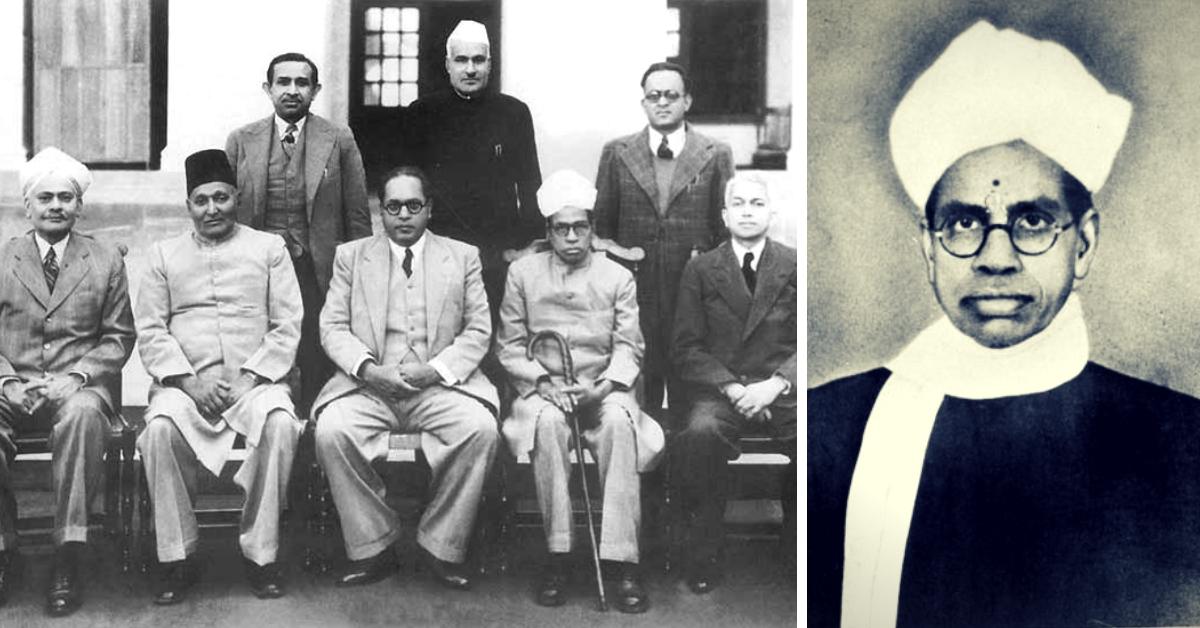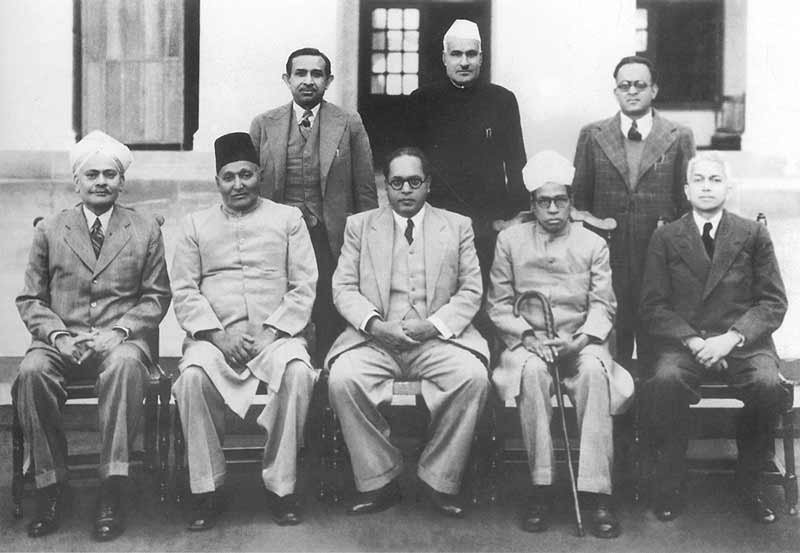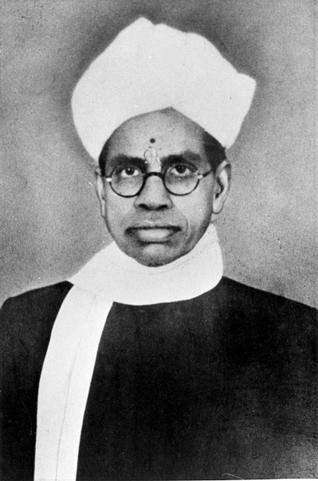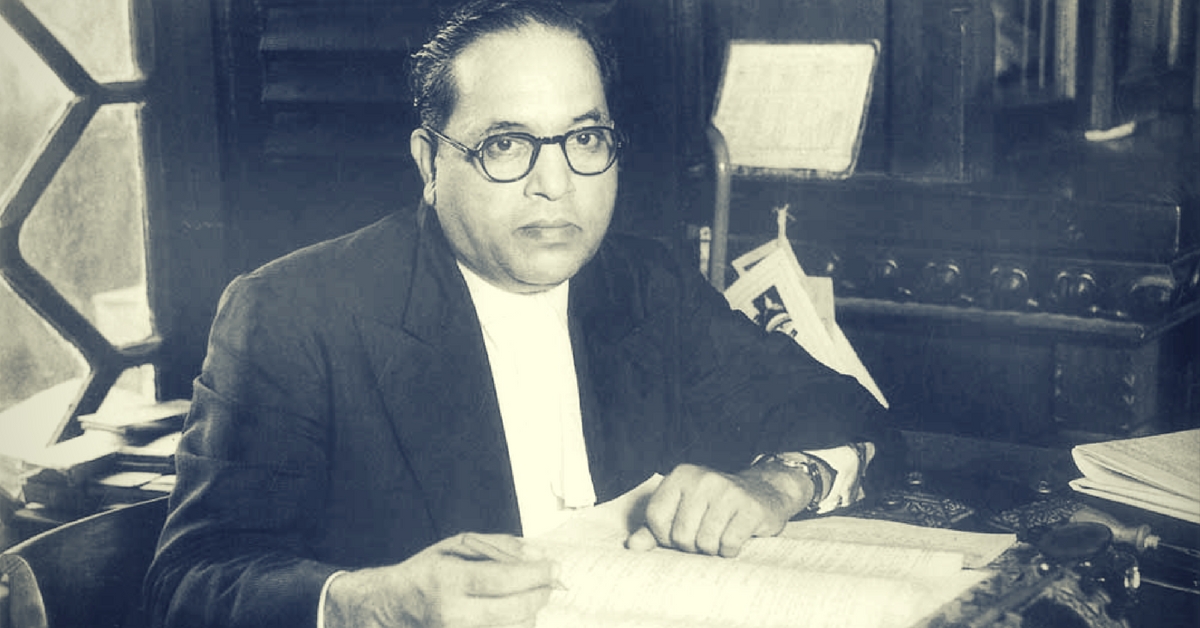Alladi Krishnaswami: An Architect of the Constitution Who Was ‘Better’ Than Ambedkar
Ayyar holds an irreplaceable position among independent India’s pioneering powerhouses on whose elegant shoulders we now stand. Did you know why?

When the Constituent Assembly came together for the first time on December 6, 1946, India was on the cusp of Independence. However, the contours of what a sovereign India would look like weren’t very clear, and it required visionaries in the assembly to draw out the laws that would govern this country for years to come.
Although Dr BR Ambedkar deserves all the recognition he has received for leading the charge in formulating a modern and progressive Constitution, there are others who also deserve due credit. One of them was Alladi Krishnaswami Ayyar, a lawyer from Madras (Chennai), whom Ambedkar said was “bigger, better and more competent than myself” and possessed knowledge of the world’s constitutions and Indian law like none other. High praise, indeed!
Born on May 14, 1883, in a remote village called Pudur in Nellore district (present-day Andhra Pradesh), Ayyar grew up in rather modest surroundings. His father Ekarma Sastry, a priest, believing that Ayyar would one day become a prominent figure in public life, moved to Madras to give his son the best quality of education and opportunities available.
After finishing school, he enrolled in the famous Madras Christian College (MCC) to study history. Such was his brilliance and eloquence that college authorities appointed him as a tutor. In his spare time, he attended law classes and eventually passed his Bachelor of Laws (B.L.) exam.
Despite his diminutive physical frame, when he spoke in the courtroom and the Constituent Assembly, it was with an authority that “radiates its influence in the High Court buildings and sheds its reflected glory on the horizon of law,” according to the late KR Srinivasa Iyengar, the former vice-president of the Sahitya Akademi.
“Without the backing of wealth or influence, he became the leader of the Bar in seven years, a position he retained through his life. His rise in the legal profession was meteoric,” writes VS Ravi, former IPS officer and Ayyar’s grandson, for The Hindu.

From 1929 to 1944, he was the Advocate General of the then Madras Presidency, where he developed a reputation for moral integrity, fearlessness and unparalleled knowledge of the law.
Before Ambedkar was inducted into the Constituent Assembly, Jawaharlal Nehru, India’s first Prime Minister, had invited Ayyar for his legal expertise even though he wasn’t a member of the Congress. Of course, it would be unwise not to mention the numerous accolades he received during his tenure as a lawyer—the Kaiser-i-Hind in 1926, Dewan Bahadur (a title awarded to individuals who had performed great service for the nation) in 1930 and two years later the knighthood.
In the Constituent Assembly, Ayyar was a member of nine House committees, among them the Drafting Committee and the sub-committee on Fundamental Rights, which would go onto draft a vital element of the ‘Basic Structure’ of our Constitution. He would also play a critical role in drawing up the contours of our Constitution’s most critical components—citizenship, universal adult franchise.
“We are plighted to the principles of a secular State. We may make a distinction between people who have voluntarily and deliberately chosen another country as their home and those who want to retain their connection with this country.
But we cannot on any racial or religious or other grounds make a distinction between one kind of persons and another, or one sect of persons and another sect of persons, having regard to our commitments and the formulation of our policy on various occasions,” Ayyar said during the debate on Article 5 of the Indian Constitution, which deals with questions of citizenship.
More pertinently, however, he spoke of how “citizenship carries with it rights as well as obligations,” a sentiment he would go onto articulate while addressing “reasonable restrictions” to some of the Fundamental Rights enshrined into our Constitution, especially during times of Emergency.

Although Ayyar believed that not all fundamental rights could be withdrawn in times of Emergency, he said, “Freedom of speech, the right of assembly and other rights have to be secured in times of peace but if only the State exists and if the security of the State is guaranteed. Otherwise, all these rights cannot exist.” Hence, his firmness on the powers of the President during times of Emergency.
After citing provisions in the Constitution of the United States, from which our founding fathers had taken inspiration from, on the question of Presidential powers during Emergency, Ayyar said:
“Therefore, under these circumstances, I submit that as the security of the State is more important, as the liberty of the individual is based upon the security of the State, and as a war cannot be carried on under the principles of the Magna Carta, or principles of individual- freedom, particularly in a country with multitudinous types of people with possibly diverse loyalties, this provision is essential. It will be the life of this Constitution. Far from killing the democratic Constitution-as one of the speakers said—it will save democracy from danger and from annihilation.”
Also Read: The First & Only Dalit Woman in India’s Constituent Assembly
The logic and rationale laid out are clear, although it would be interesting to gauge how Ayyar would have reacted to the Emergency imposed by the Indira Gandhi government three decades later.
There is nothing quite like hindsight, and although Ayyar was a visionary, he was also a man of his times. No one was quite sure of the future course India would take as a sovereign and democratic republic, or whether it would even survive the multitude of ethnic, caste and religious differences spread across this giant landmass. Thus, the emphasis on security of state over individual rights.
Nonetheless, Ayyar firmly believed that the real test of any Constitution was how it would play out in the hands of ordinary Indians. Following the disbandment of the Constituent Assembly and in the days gearing up to India’s first election, Ayyar was delighted at the sight of voters thronging to the polling booths and a vindication of sorts that this experiment in democracy could work.

“The recent elections based on universal suffrage in which a majority of the adult population of India, men and women, literate and illiterate, propertied and non-propertied, have taken part with enthusiasm and unexampled orderliness — a circumstance which has elicited the admiration of foreign observers and critics — have demonstrated, if any proof was necessary, the acceptance of the Constitution by the people of India as a whole,” he said.
To gauge the measure of this man, we may not have to look further than the tribute Ambedkar paid him during the final days of the Constituent Assembly in 1949:
“I came into the Constituent Assembly with no greater aspiration than to safeguard the interests of the Scheduled Castes. I had not the remotest idea that I would be called upon to undertake more responsible functions. I was therefore greatly surprised when the Assembly elected me to the Drafting Committee. I was more than surprised when the Drafting Committee elected me to be its Chairman. There were in the Drafting Committee men bigger, better and more competent than myself such as my friend Sir Alladi Krishnaswami Ayyar.”
Despite his contributions to the drafting of India’s Constitution and impeccable reputation as a lawyer, Ayyar never considered becoming a judge and refused numerous such opportunities to become one. Following his tenure in the Constituent Assembly, he went back to his practice as a lawyer. On October 3, 1953, Ayyar passed away at his family home Ekarma Nivas in Chennai.
It isn’t difficult to argue that his contributions to the Indian nation-state have stood the test of time.
(Edited by Gayatri Mishra)
Like this story? Or have something to share? Write to us: [email protected], or connect with us on Facebook and Twitter.
If you found our stories insightful, informative, or even just enjoyable, we invite you to consider making a voluntary payment to support the work we do at The Better India. Your contribution helps us continue producing quality content that educates, inspires, and drives positive change.
Choose one of the payment options below for your contribution-
By paying for the stories you value, you directly contribute to sustaining our efforts focused on making a difference in the world. Together, let’s ensure that impactful stories continue to be told and shared, enriching lives and communities alike.
Thank you for your support. Here are some frequently asked questions you might find helpful to know why you are contributing?


This story made me
-
97
-
121
-
89
-
167













